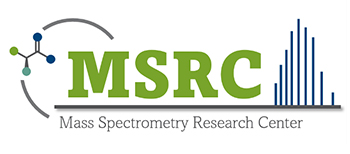Summary

The Mass Spectrometry Research Center (MSRC) combines advanced expertise with high-performance instrumentation to support basic, translational, and clinical research at NIEHS. The MSRC specializes in the measurements of proteins, lipids, and metabolites (i.e. analytes) by mass spectrometry methods coupled to chemical separation techniques, such as ultra-high performance liquid chromatography. Analytes can be measured from a wide variety of samples (e.g. blood plasma, cell cultures, tissues) and preparations. The MSRC can support projects ranging from single-sample analysis to complex, multi-year collaborations. We strongly believe the best outcomes are derived by planning and collaboration. We assist throughout the entire scientific progress including experimental design, sample preparation, data acquisition, and preliminary data analysis. Beyond preliminary data analysis, the MSRC utilizes and develops advanced informatics tools to mine, filter, and interpret mass spectrometry data. The mission of the MSRC is to deliver high-quality data and expertise to advance environmental health science.
Offerings
- Protein, Lipid, or Metabolite Identification and Characterization
- Proteomics, Lipidomics, Metabolomics
- Custom Mass Spectrometry-based Measurements
- Data Analysis and Interpretation Support
Contact

Jason G. Williams, Ph.D.
[email protected]

Alan K. Jarmusch, Ph.D.
[email protected]
Video


